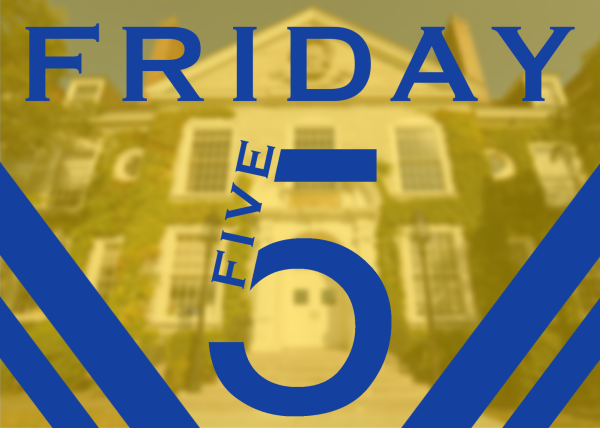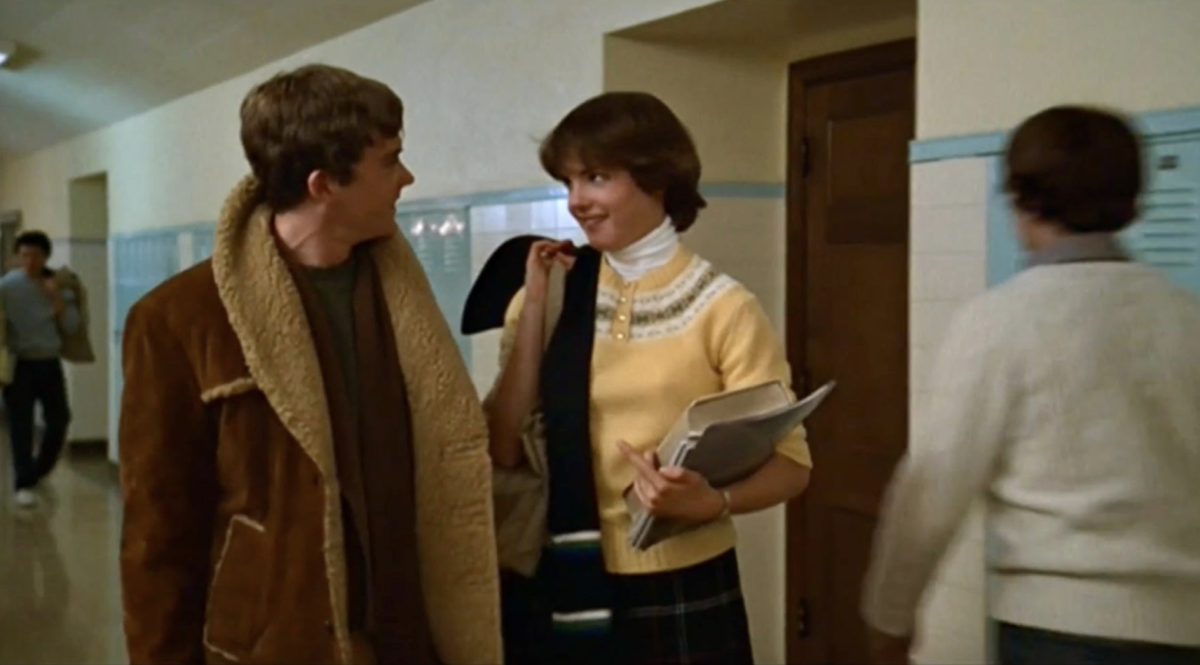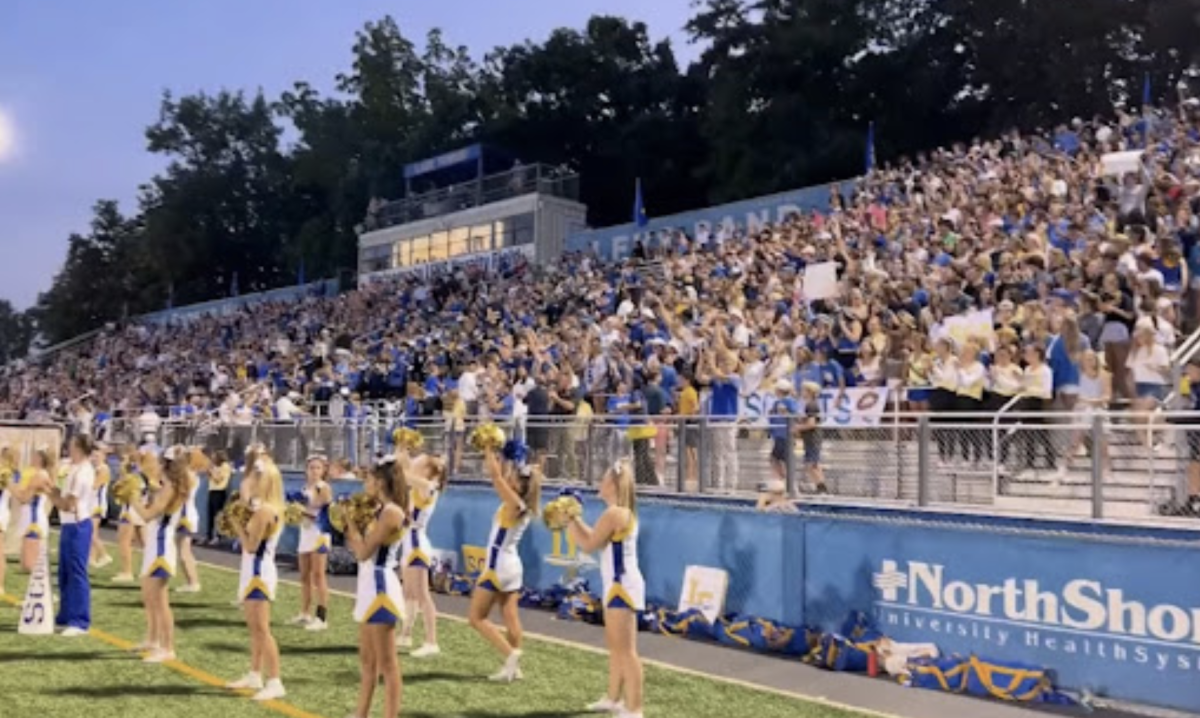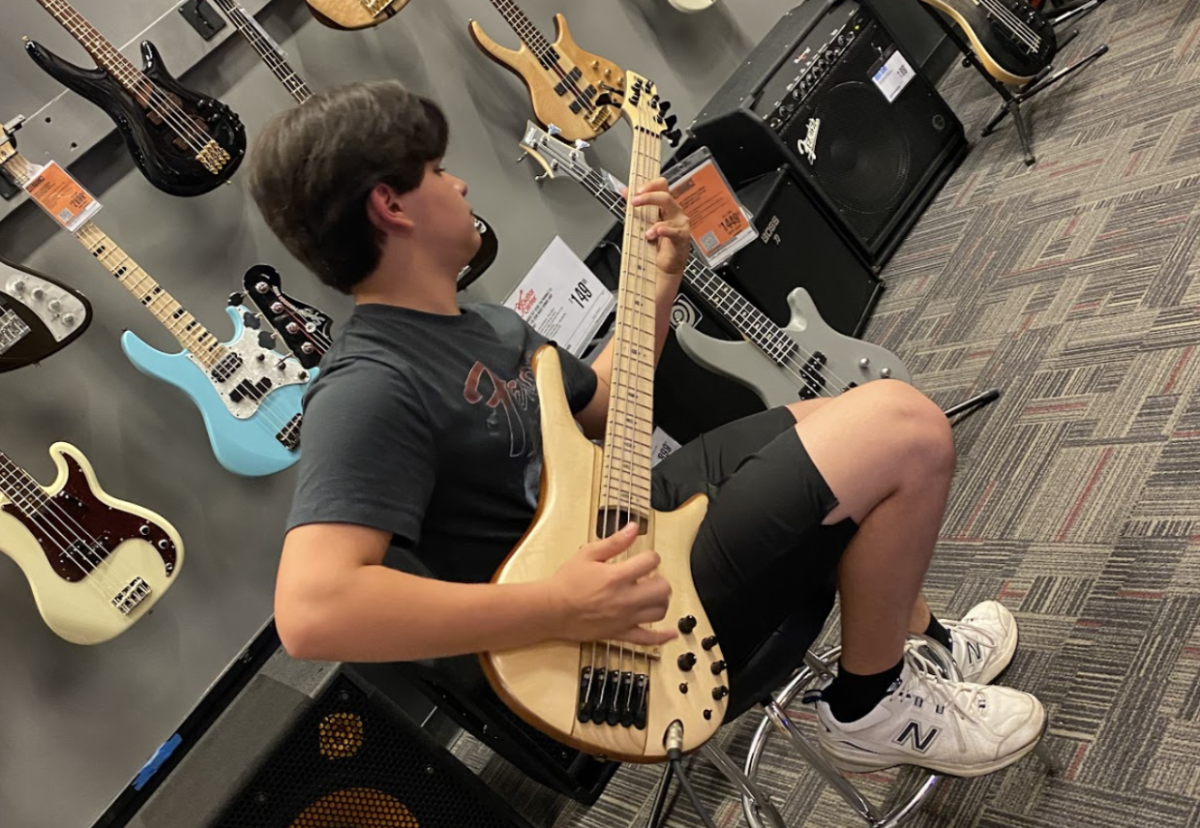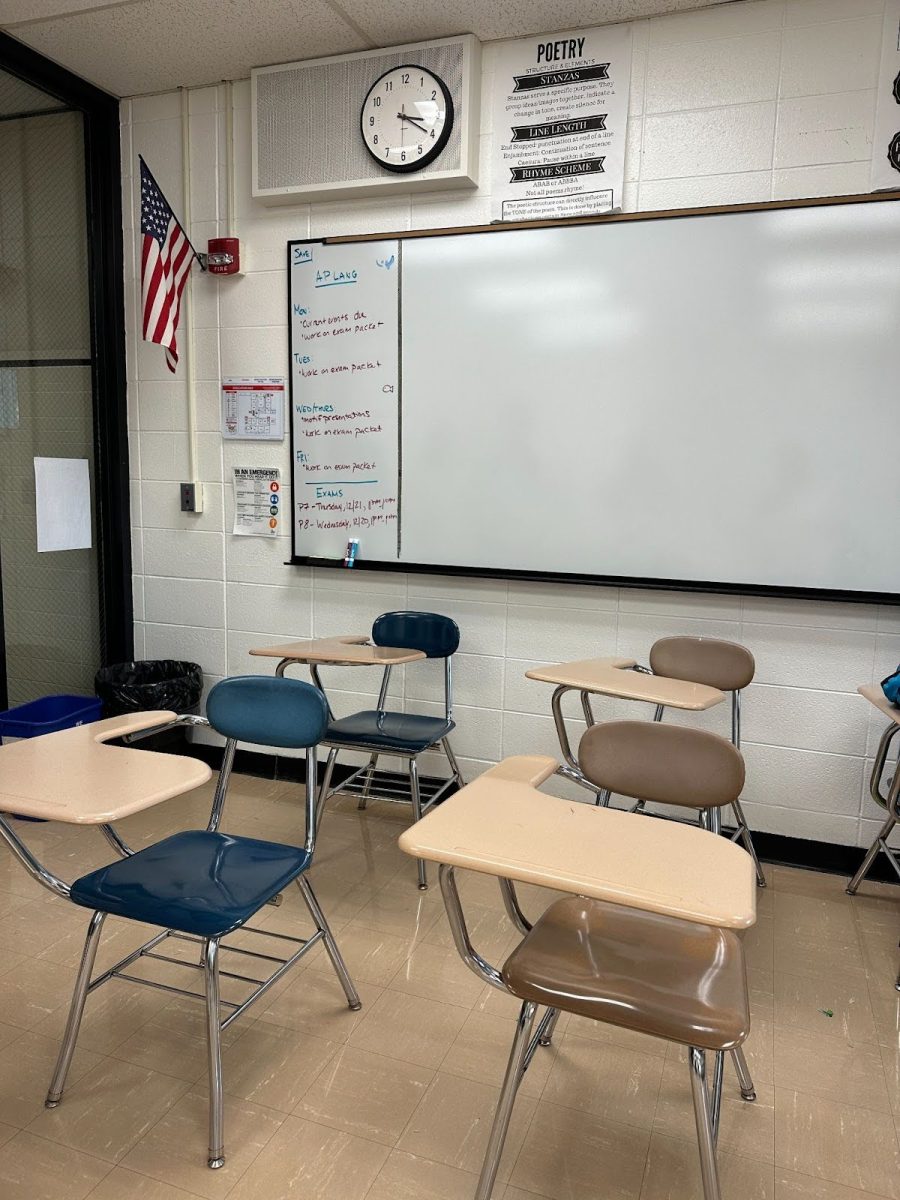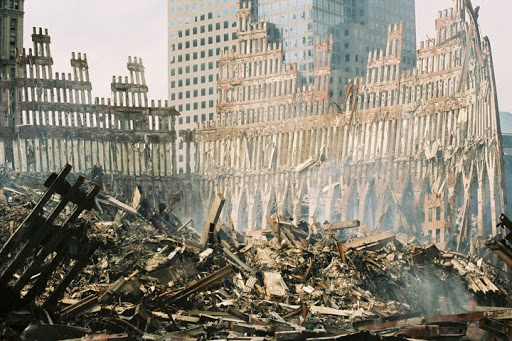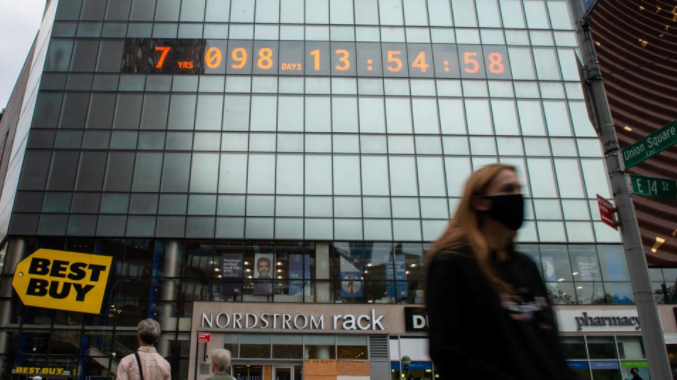On October 7, 2023, in addition to killing more than 1,200 people in Israel, Hamas took 250 hostages into Gaza. Many of those taken were innocent civilians, including the elderly, women, children, and people who were attending the Nova Music Festival. They were brought into the Gaza Strip under Hamas’ possession. Forty-eight hostages remained in Gaza as of October 13th, with only 20 still alive. Just over two years later, an end to the bloodshed is now in sight, with both Israel and Hamas agreeing to President Trump’s Peace Plan. The first phase of the plan that the parties agreed to was returning the hostages, living and dead, to their families.
The Am Shalom Synagogue in Glencoe has been supporting the hostages since the very beginning with an outdoor memorial. Within three weeks of the attack, the synagogue put up 250 chairs to represent each hostage on its front lawn. As of today, there are 48 chairs left that have been there for the past 700 days.
Am Shalom’s Senior Rabbi, Steven Lowenstein, explained how this memorial was one of the first to commemorate the hostages.
“Nobody else had been doing this in Chicago. This memorial serves as an important reminder for everyone passing by to take a moment to think of the hostages. No matter what you feel about the war or what side you are on, people should not be taken from their homes,” said Lowenstein
Am Shalom continued to update the memorial as more time passed and more updates were announced on the status of the hostages.
“We put blue and white ribbons on chairs for those who were still alive, and black ribbons on the chairs of those who were confirmed dead. We just lived through these 250 hostages knowing that there are still 48 waiting to be returned,” Lowenstein said.
Over the course of two years, the memorial evolved. There was a chain reaction of people bringing stuffed animals, flowers, lights, and signs. A Lake Forest High School Student and longtime Am Shalom member of ten years found this memorial to be a meaningful outlet for the community during difficult times.
“It was so amazing to see the chairs and the outpouring of support for the hostages and their families. There are times I felt like people were forgetting about the hostages; however, seeing the chairs was a great reminder that the hostages are still out there and needed to come home,” said junior Lila Silvers.
 As news arrives of President Trump’s Peace Plan and the return of the hostages, Lowenstein feels strongly that the memorial should not be removed. Instead, Am Shalom plans to create a permanent memorial. This will be the first-ever permanent memorial in the country for the hostages––right nearby in Glencoe.
As news arrives of President Trump’s Peace Plan and the return of the hostages, Lowenstein feels strongly that the memorial should not be removed. Instead, Am Shalom plans to create a permanent memorial. This will be the first-ever permanent memorial in the country for the hostages––right nearby in Glencoe.
“We could never bring the chairs in, wipe them off, and have other people sit in them. These chairs belong to the hostages,” said Lowenstein.
Lowenstein hopes the permanence of the memorial will give peace to the hostage families as they come to terms with the tragedy and the loss of their loved ones.
“I hope we know who is alive and who is dead. I hope the families that have been waiting for their children to be returned will get them back. I hope they will be able to have the proper burials and funerals that they have been waiting to do for two years. It is cruel for these families. They are living in a suspended animation,” says Lowenstein.
On the two-year anniversary of the October 7th attacks, Am Shalom broke ground on the site where it plans to install a permanent memorial for the hostages. Rabbi Phyllis Sommer, an associate Rabbi at Am Shalom, explains that after the release of the hostages, the memorial will take on a new meaning and become a place that civilians can visit to reflect and express their gratitude.
“I think it’s important to make the memorial permanent in order to help our community have a safe place to remember and come together. I hope people will never forget the atrocities of October 7th, and that this memorial will help everyone have a place to go, to mourn and remember, and also to be grateful for those who survived,” said Sommer.
Lowenstein has had the opportunity to travel to Israel seven times since October 7th. He has gone to many different events, and every time he travels, he makes an effort to meet with the hostage families and hear the stories of their loved ones. Whether it was a hostage’s cousin, father, or grandchild, Lowenstein has listened to as many stories as he could.
The story that stayed with Lowenstein the most was that of 23-year-old hostage Hersh Goldberg Polin. Lowenstein had previously known Polin’s Aunt and Grandmother very well. Polin’s parents grew up in Chicago, as Polin always loved the Chicago Cubs, White Sox, and the Bulls.
Polin had just been celebrating his birthday before coming to the Nova Music Festival. After the attack, Polin––along with 27 others––ran to a shelter to seek safety. His best friend, Aner Shapira, blocked the shelter’s doorway and managed to throw back seven grenades before being killed by the eighth. During this attack, a grenade blew off Hersh’s left arm. Hamas abducted Polin and others from the shelter and took them to Gaza, where they were held hostage under unimaginable circumstances.
After a proposed agreement, there was hope that Polin would be freed due to his injury. As these hostages were on their way to safety and freedom following the agreement, six were executed by Hamas militants in a tunnel. Polin was one of them.
“He was just a kid doing what he loved to do. He’s a kid just like my kid. He’s a kid just like the students at Lake Forest High School. An American citizen who was out enjoying music, just like any of us would. You can hold two truths in your heart at the same time. You can be sad for the people in Gaza, and you can be sad for the hostages. And this does not make you a bad person. You can’t be only one-sided,” said Lowenstein.
As the new memorial comes into place and the hostages are being reunited with their families, their stories will never be forgotten. The permanent memorial will be a tribute to show how in times filled with conflict, there is a place to go for peace and reflection.



